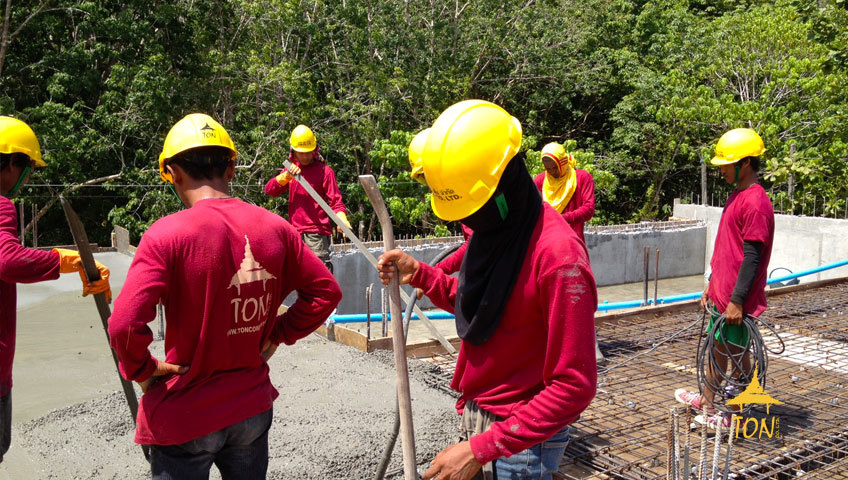
Safety First
If you have been in Thailand for a while, you are sure to have come across at least one of the following sights: barefoot and bare-headed construction workers up on a roof; small children playing in a pile of building materials; or a man welding metal while protecting his eyes with a scratched pair of fake Ray-Bans.
These are just some of the shocking and highly dangerous scenarios that occur regularly across Thai building sites, where health and safety regulations are rarely applied, either by job owners or the workers themselves. Ton Company is now actively implementing western safety standards across all of its construction sites to ensure workers and their families are injury-free throughout the building process.
“Due to the nature of the machinery and equipment used in construction, this industry is already among the most dangerous in the world,” says Pierre-Yves Loriers, Ton Company’s Managing Director. “We are taking these measures to try and prevent unnecessary accidents, in accordance with Occupational Health and Safety regulations.” SafetyFrom proper clothing and equipment for staff, to correct procedures, signage and adequate first aid on site, all aspects of the building process are being covered.
Workers must wear the hard hats, gloves and steel-capped boots provided for them, before being allowed on site - plus any other safety gear appropriate to the task they are working on, such as goggles, earmuffs, masks and harnesses. Any visitors to the site must also wear proper protection and children are prevented from entering, even after the workers have left, by secure fencing around the work area.
The construction site itself is properly maintained with clear signage, unobstructed access ramps, and stairs etc. protected with anti-slip tape. Workers have set hours and may not exceed the normal shift time, to help prevent accidents caused by drowsiness. “Previously when we were using outside contractors to realize our villa designs, it was harder to ensure that these regulations were followed,” says Ton. “Now we have put together our own team of workers, so it is easier to have control and be strict about these things.
They are small but important changes to make: after all, no one wants to feel responsible for another’s injuries or long term health problems that can arise from inadequate protection.” Ton Company is striving to keep its workers safe; and it encourages others to do the same.
